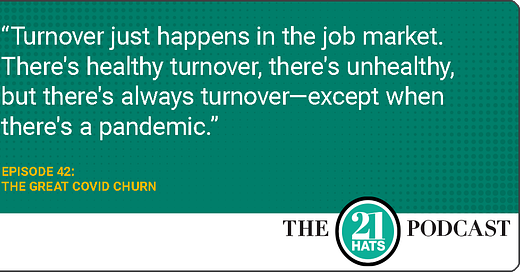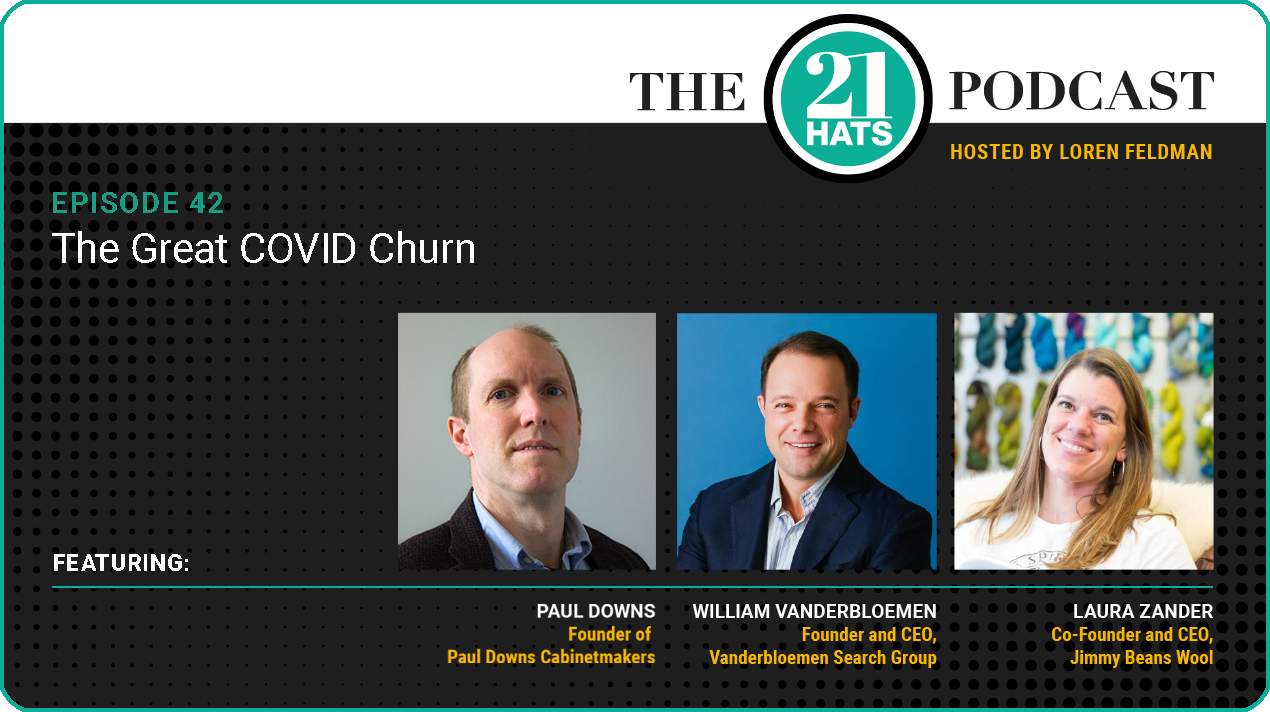Bankruptcy Is an Option
“Going bankrupt isn’t admitting defeat,” writes Gene Marks, who owns a consulting firm. “It’s a strategy to succeed.”
Good morning. Here are today’s highlights: America’s latest pandemic shortage is antacid. Etsy is no longer a punchline. And Elon Musk has left the valley.
THE ENTREPRENEURIAL LIFE
There is growing concern that business owners may not be getting the mental-health support they need: “The number of entrepreneurs seeking Dr. Michael Freeman’s help has been climbing since the pandemic upended life in the U.S. ‘Elevated stress levels, elevated anxiety, and elevated levels of depression are common among people in my practice,’ says the Bay Area psychiatrist-psychologist, who since 2005 has focused his practice exclusively on entrepreneurs. ‘Many have been adversely affected by the pandemic and its many manifestations.’
“In June, Freeman launched Econa, an online community meant to provide a safe place for entrepreneurs to express their emotions and learn from each other and professionals. Workshop topics have included addiction recovery, ADHD management, and cofounder relationships.”
“‘When you're under financial stress, you're under mental duress,’ says Geri Aglipay, who oversees [the Small Business Majority’s] Midwest operations, as well as its entrepreneurship programs for women. ‘It impacts the ability to think clearly and to think long-term for stability and sustainability for your business.’” READ MORE
THE COVID ECONOMY
The latest pandemic shortage? Antacids: “People searching online or in stores for over-the-counter tummy soothers are finding that they can’t easily buy antacid medications like Tums, Pepcid and its generic version, famotidine, in parts of the country. A few weeks ago, Wegmans Food Markets took the step of limiting shoppers to two packets of famotidine products per trip. During a pandemic that has seen bursts of hoarding, this may be the most unexpected. Americans are stressed. They’re concerned about the rising number of coronavirus cases. They worry about their jobs. Remote learning is a nightmare, and grocery shopping is no walk in the park. Not to mention the elections. And now, here come the holidays.” READ MORE
MANAGEMENT
Bankruptcy may be the best option for devastated businesses: “In the past, filing for reorganization under the Chapter 11 bankruptcy code was an expensive, complex affair, especially for small firms. But just this year, that’s all changed. That’s because of the new Small Business Reorganization Act. The new law puts control solely in the hands of the small business owner, and it significantly reduces paperwork, fees and the time frame for filing and then emerging from a bankruptcy reorganization. It provides more asset protections, particularly around personal assets (as long as they weren’t previously pledged).”
“Still, many restaurant owners I know may hesitate to take such drastic action. They’re concerned about what the news of a bankruptcy would do to their restaurant’s reputation, credit scores and relationships with their suppliers.”
“‘It’s not going to hurt your brand,’ [bankruptcy attorney Michael] Cibik says. ‘You’re in possession of the restaurant, you’re operating. That’s the really big benefit.’”
“Going bankrupt isn’t admitting defeat. It’s a strategy to succeed. It gives the restaurant owner an important weapon: time.” READ MORE
OPPORTUNITIES
Etsy has ridden the pandemic from craftsy marketplace to blue-chip corporate: “Along with a cluster of ‘stay at home’ stocks like Zoom Video, Peloton and Shopify — so called because their businesses took off during the pandemic as people’s shopping and work habits changed — Etsy has seen its share price soar. More than 90 percent of Wall Street analysts rate the stock a ‘buy.’ Individual investors, mutual fund managers and hedge fund traders alike have been scooping up its shares, which have risen more than 250 percent this year. That makes Etsy by far the best-performing stock in the S&P 500 stock index, to which it was added in September — a sign that it was now in the corporate big leagues.”
“Such blue-chip status would have seemed like a long shot just a couple of years ago for a company that began in 2005 as a site for a founder to sell handmade wood-clad computers …”
“By 2015, when Etsy went public, it had morphed into a crusader for socially conscious capitalism. In its offering documents to investors, Etsy promoted its do-gooder credentials almost as much as its business prospects.”
“Most of the items sold on the site are made to order for individual buyers, a process that defies the kind of next-day-delivery many online consumers have come to expect. (Etsy takes a 5 percent cut of sales.)” READ MORE
Plastic Surgeons say they’re experiencing a Zoom boom: “It has been the perfect storm, according to those in the field. Many workers are spending more time on Zoom, which isn’t the most flattering of mirrors. They’re also realizing they won’t have to return to an office anytime soon, which will make recovery, and keeping surgery private, easier. Those who choose facial surgery can cover postoperative swelling with a mask when in public.”
“‘During the virtual consultations, 9 out of 10 people commented about noticing these things over Zoom,’ [said Jon Mendelsohn, medical director of Advanced Cosmetic Surgery & Laser Center in Cincinnati].” READ MORE
SILICON VALLEY
Elon Musk has moved to Austin: “He said relocating made sense with Tesla’s new factory being built in Texas. He lamented that California, in his view, had become complacent with its innovators. Mr. Musk’s companies continue to maintain extensive operations in California, and other tech firms are expanding their presence there. Yet his decision to move underscores a growing discontent, particularly among wealthier tech professionals, with the cost of living in the state, a pre-pandemic real-estate crunch and clogged roads.”
“Taking up residence in Texas comes with personal benefits for Mr. Musk: The state doesn’t collect state income or capital-gains tax for individuals.”
“The auto executive qualified this year for billions of dollars in stock-option compensation as part of a pay-package agreement, making him the second-richest person in the world.” READ MORE
STARTUPS
The FTC wants to block Procter & Gamble’s acquisition of razor startup Billie: “Eight months ago, the antitrust agency made a similar move, suing to stop Schick-owner Edgewell Personal Care from absorbing Harry's, a men's razor startup. The FTC claimed the $1.4 billion Harry's buyout would ‘remove a critical disruptive rival that has driven down prices and spurred innovation’ in an industry long-dominated by two main suppliers: Edgewell and P&G. The Billie deal would present similar problems, according to a statement from the FTC. Billie, founded in 2017, became a market disruptor selling razors and other products directly to consumers while championing an effort to topple the ‘pink tax,’ a practice of pricing women's products higher than men's goods.” READ MORE
THE 21 HATS PODCAST
Episode 42: The Great Covid Churn: This week, Paul Downs, William Vanderbloemen, and Laura Zander talk about William’s prediction that 2021 will be a year of employee turnover. His theory, which he says he’s already seeing in practice, is that pent-up forces that were blocked by the pandemic this year will be unleashed in 2021—especially as vaccines arrive and the economy improves. His advice: Make sure your best people feel appreciated. Or, as he puts it: “Better to keep a good employee—even if it costs you more than you think it should—than to have to call me.” Plus: we establish that there’s a lot of confusion about how to manage your PPP loan tax liability, and we discuss whether, when the time comes, businesses should require employees to get vaccinated.
You can subscribe to The 21 Hats Podcast wherever you get podcasts.
You can also click on the button below to listen to the podcast or read a transcript.





